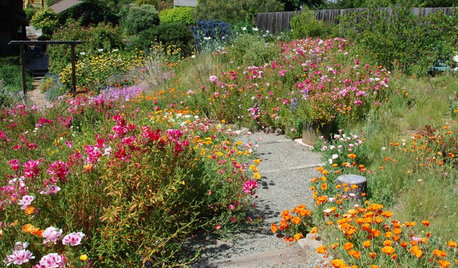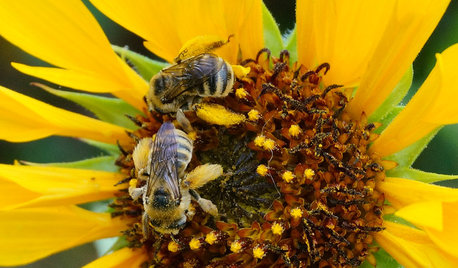Neem oil
Christian
11 years ago
Related Stories

GARDENING GUIDESHow to Keep Your Citrus Trees Well Fed and Healthy
Ripe for some citrus fertilizer know-how? This mini guide will help your lemon, orange and grapefruit trees flourish
Full Story
EARTH DAYHow to Design a Garden for Native Bees
Create a garden that not only looks beautiful but also nurtures native bees — and helps other wildlife in the process
Full Story
GARDENING FOR BUTTERFLIESGardening for the Bees, and Why It’s a Good Thing
When you discover how hard bees work for our food supply, you may never garden without them in mind again
Full Story
MOST POPULARHow to Start a Cool-Season Vegetable Garden
Late summer and late winter are good times to plan and plant cool-season crops like salad greens, spinach, beets, carrots and peas
Full Story
WINTER GARDENINGPruning Secrets for Exquisite Roses
Encourage gorgeous blooms year after year with this time-tested advice on how to prune your rosebush in winter for health and shape
Full Story
GARDENING AND LANDSCAPINGBid Bad Garden Bugs Goodbye and Usher In the Good
Give ants their marching orders and send mosquitoes moseying, while creating a garden that draws pollinators and helpful eaters
Full Story
GARDENING AND LANDSCAPINGPorch Life: Banish the Bugs
Don't let insects be the bane of your sweet tea and swing time. These screening and product ideas will help keep bugs at bay on the porch
Full Story
GARDENING GUIDESHow to Switch to an Organic Landscape Plan
Ditch the chemicals for a naturally beautiful lawn and garden, using living fertilizers and other nontoxic treatments
Full Story
MOST POPULARMy Houzz: Open-Air Living in the Mountains of Bali
Community, jaw-dropping beauty and sustainability come together in a tropical paradise for a London expat
Full Story
EARTH DAY12 Entertaining ‘Bee-haviors’ of Native Bees
The parade of pollinator antics is another reason to create a garden that nurtures native bees
Full StorySponsored
Industry Leading Interior Designers & Decorators in Franklin County
More Discussions







Kimmsr
rhizo_1 (North AL) zone 7
Related Professionals
Wixom Landscape Architects & Landscape Designers · Matthews Landscape Contractors · Anderson Landscape Contractors · Canton Landscape Contractors · College Park Landscape Contractors · Cudahy Landscape Contractors · Dedham Landscape Contractors · Deerfield Landscape Contractors · Inglewood Landscape Contractors · San Antonio Landscape Contractors · South Portland Landscape Contractors · Auburn Decks, Patios & Outdoor Enclosures · North Myrtle Beach Decks, Patios & Outdoor Enclosures · Northglenn Decks, Patios & Outdoor Enclosures · Dent Stone, Pavers & Concretetapla (mid-Michigan, USDA z5b-6a)
ChristianOriginal Author
cumulo